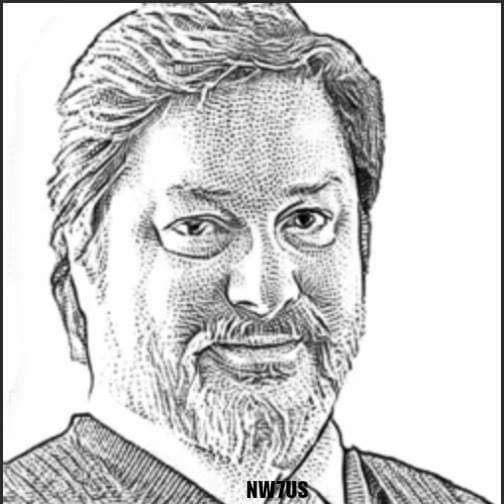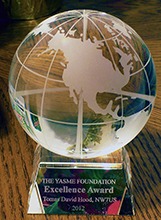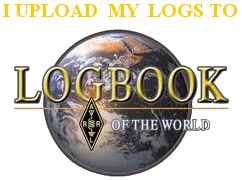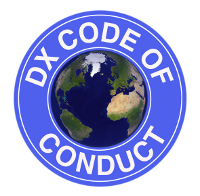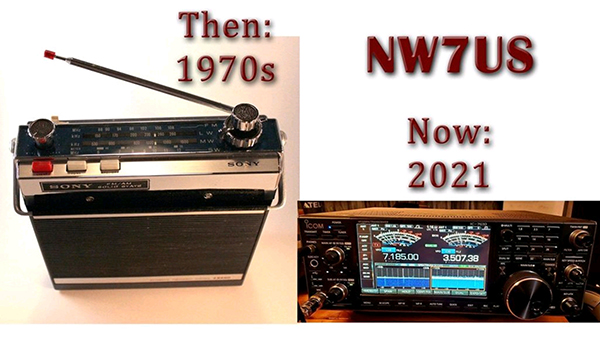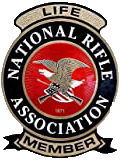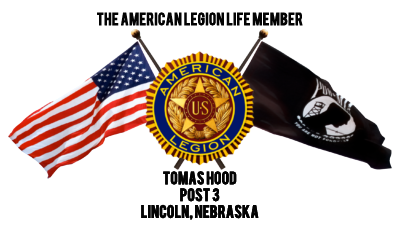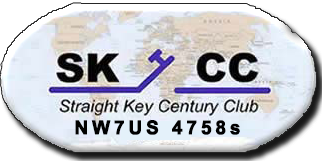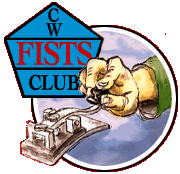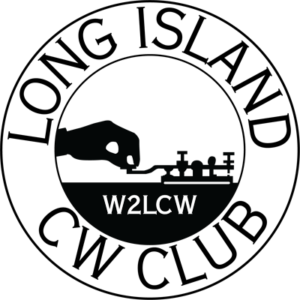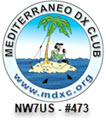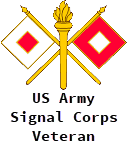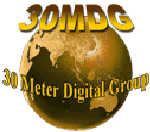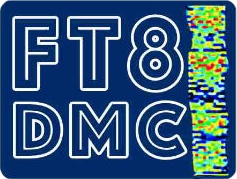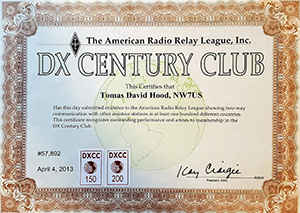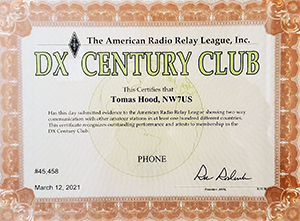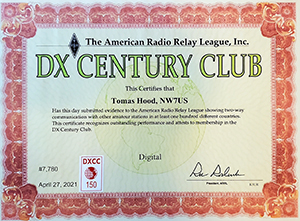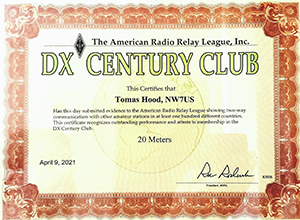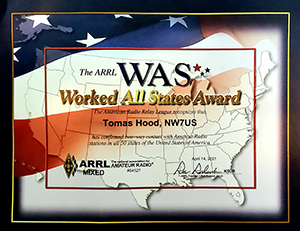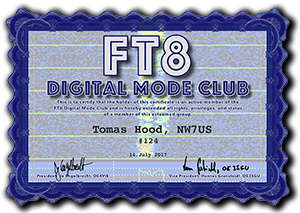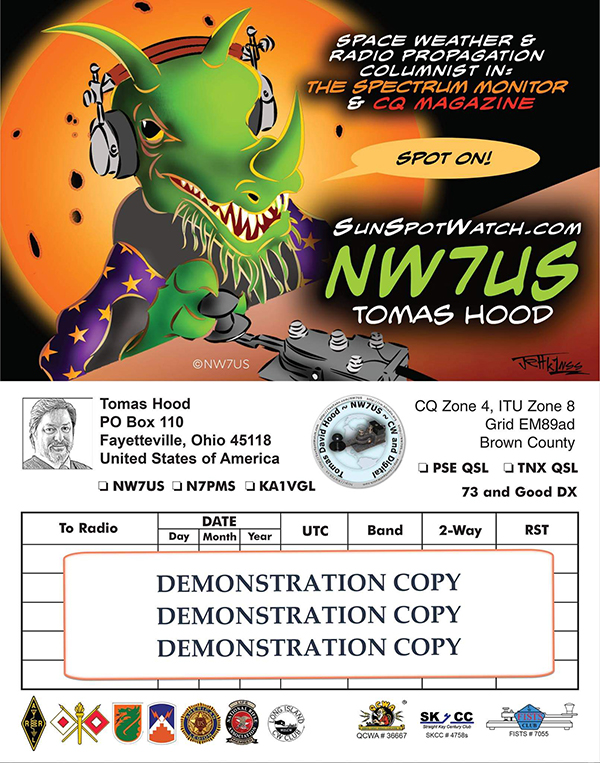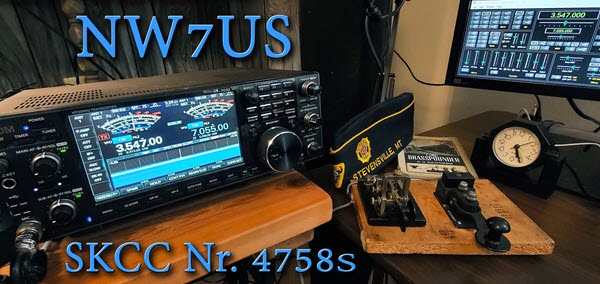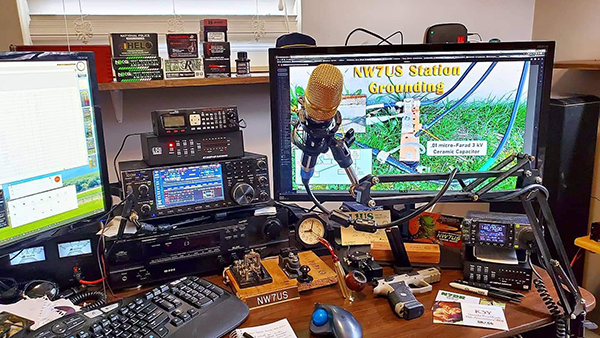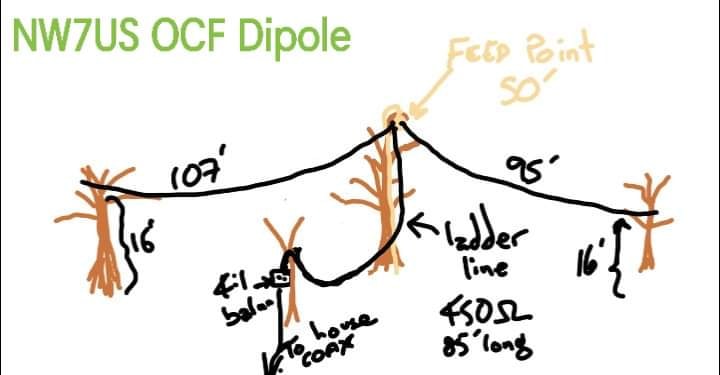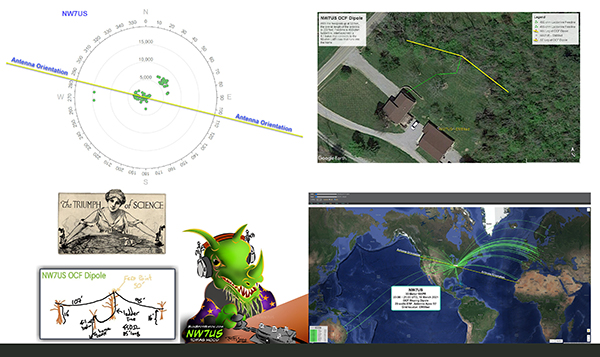| Name: | Tomas |
| QTH: | Fayetteville |
| Country: | United States |
| Grid: | EM89 |
| Web: | https://nw7us.us |
| Tomas Hood | |
| PO Box 110 | |
| Fayetteville, OH 45118 | |
| United States | |
| Licensed since: | Hidden |
| ITU: | 8 |
| CQ: | 4 |
| State: | OH |
| County: | Brown |
This is the official Tomas David Hood - NW7US biography (updated: Feb 21, 2022)
Then, and, now. I've loved shortwave radio since the early 1970s.
When I was about nine years old, I got a hold of my parent's Sony Multiband Portable radio. I cannot remember which model. But it had four bands, FM, AM, LW, SW. I soon discovered that the SW selection held very strange and somewhat exotic sounds and stations.
As you might have guessed, SW stands for Shortwave (LW is for Longwave those frequencies below 530 KHz, AM is for the Amplitude Modulation mode, which is what is used in the domestic broadcast band (between 530 KHz and 1750 Khz or so), and FM (frequency modulation), the popular band of radio spectrum that everyone seems to enjoy, with music, talk, and other formats).
Shortwave describes the size of the radio wave used to transmit the signal that the radio can tune and listen in on.
As I began to discover not only odd, interesting noises and pops, whistles, and alien-like sounds, but also a great variety of radio stations from all parts of the world, I became deeply interested in the technical aspects of what made this little radio achieve such great magic. It seemed very magical that the BBC (England), RSA (Radio South Africa), CBC (Radio Canada International), Radio Australia, and so many more exotic stations, could be heard by me in the middle of Montana's Rocky Mountains. Hearing these signals lured me into listening and learning more about Shortwave Listening to the point that I was hooked for life.
I tried to get books about radio, electronics, and related information. Hard to come by for a nine-year-old. But I did get some support from my parents and friends, school, and library. I studied that until I knew it forward and backward. Tube theory, transistors (which were still a newer concept to the general consumer market, in the early 1970's), resistors, capacitors, and all the other doo-hickies and thing-a-ma-bobs that made all this magic of radio come into being.
How about you? Then, and, now?
I am a member of a number of clubs, groups, organizations. For instance, I am in SKCC member 4758s, FISTS member 7055, ARRL, Long Island CW Club, MDXC (Mediterranian DX Club), (SWODXA) Southwest Ohio DX Association, True Blue DXers Club member 1607, and others:
- SKCC member 4758s,
- FISTS member 7055,
- FT8 Digital Mode Club (FT8 DMC) member 124,
- North American QRP CW Club member 1774,
- Ten Ten International member 56526,
- Long Island CW Club member 653,
- MDXC (Mediterranian DX Club) member 473,
- (SWODXA) Southwest Ohio DX Association,
- True Blue DXers Club member 1607,
- ARRL,
- and others.
QSLing (Confirmation of our QSO):
You can send an SASE with your QSL card to me via postal service, and I will send a paper QSL back:
Tomas Hood / ARS NW7US
PO Box 110
Fayetteville, Ohio 45118
Or, my QSL is OK via eQSL, LotW, QRZ.com, or via the bureau (though, that is VERY slow).
PAPER QSL UPDATE: Now that I have finally moved into a house, and have a long-term address, I have obtained QSL cards. I will attempt to catch up with all of the QSL cards sent to me in the past... but the going will be slow. Do know that I plan on QSL returns to everyone. Just allow me a lot of time to catch up, please. Thank you.
Here is the final design, by Jeff, K1NSS, printed by KB3IFH Qsl Cards:
My station, in Ohio
You may click on any image, to see a larger version in a new browser tab.
My main transceiver is the venerableIcom IC-7610:
which I control by using the Win4IcomSuite software.
For logging I am using Log4OM Version 2, with:
- FLDigi for digital operations (mostly Olivia),
- WSJT-X,
- JTAlert,
- Ham Radio Deluxe with DM780 for digital operations,
- N1MM Logger+ for contesting,,
- or other programs as needed.
My Current Operations Desk
From here, I operate my amateur (ham) radio station, on Mediumwave and
Shortwave (shortwave is also known as HF, for, High Frequencies), and on VHF and above.
One of the most useful (and, to me, amazing) features of this Icom IC-7610, is the IP+ function, which, when turned on, improves the Intermodulation Distortion (IMD) quality by optimizing the direct sampling system performance. This function optimizes the Analog/Digital Converter (ADC) against distortion when you receive a strong input signal. It also improves the Third-order Intercept Point (IP3) while minimizing the reduction of the receiver sensitivity.
In short: I was listening to an s-0 weak signal of a DX station, when right adjacent to the frequency came an s-7 signal, wiping out my ability to copy that weak signal. I turned on the IP+ and the distortion of the adjacent signal disappeared, and once again, I heard the weak signal IN THE CLEAR! WOW!
My current shortwave (HF; High Frequency) antenna, used for receiving as well as transmitting, is an off-center-fed dipole antenna. The feed point is up at 50 feet, with one leg running Westward, and the other running Eastward. In the following images, you can see the actual orientation of the antenna.
Raw drawing of the off-center-fed dipole:
In context, here is the raw drawing of the off-center-fed dipole, the azimuth of the two legs of the dipole, a rough plot superimposed on the satellite image of my home, and footprint on the 30-Meter Band (as an example of its performance):
My location at EM89ad:
Below: The next image shows my planned, new 160-meter full wavelength horizontal loop antenna. My new home is in Ohio, and this loop antenna will be my first main antenna that I will engineer and deploy once I am settled into the new home.
* * * *
I tend toward pursuing Morse code--by way of the tried-and-true CW (continuous-wave radio signal) keying either by a straight key (the typical up-and-down lever style of Morse code instruments), or a single-lever side-to-side paddle key that depends upon electronics to create the dits and dahs--the Icom IC-7610 has such a keyer feature, so I just plug in the key that you see, below, and the radio can be set to operate Morse code CW, keying dits when I move the lever to the right, and dahs when I push to paddle to the left. The keyer spaces everything out, I just have to control the sequence.
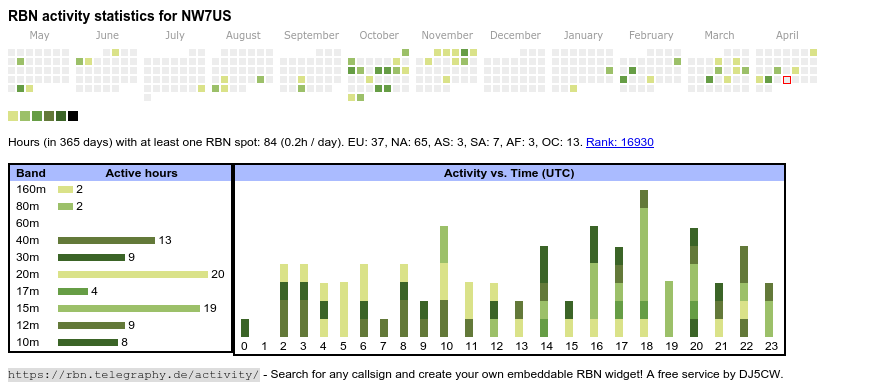
NW7US CW Activity Reverse Beacon Spotting
Morse code activity as reported by the Reverse Beacon Network.
Go to the Reverse Beacon NetworkClub Log
Clublog is an online database with a suite of powerful tools supporting active DXers.

Once you have registered on Club Log and uploaded your log, you will be able to do a lot of cool things! Check it out.
Go to Club LogOlivia Digital Mode
Olivia MFSK is my most favorite digital mode (other than CW).
Go to Olivia Digital Mode Community
HRDLog.net Logbook for NW7US
This is a listing of the most recent QSOs made by NW7US, as logged in the NW7US Logbook on HRDLog.net
QRZ.com Logbook for NW7US
This is a listing of the last 15 QSOs made by NW7US, as logged in the NW7US Logbook on QRZ.com
Go to the QRZ.com Logbook
NW7US YouTube Channel
Here are some videos on my YouTube channel. Enjoy. Feedback is welcome - comment on the video page.
Please subscribe to my YouTube channel... you'll get updates!
Thanks for Visiting
Copyright © 1998-2022 · All Rights Reserved · Tomas Hood, NW7US
You have to be logged in or user does not allow showing this data.







